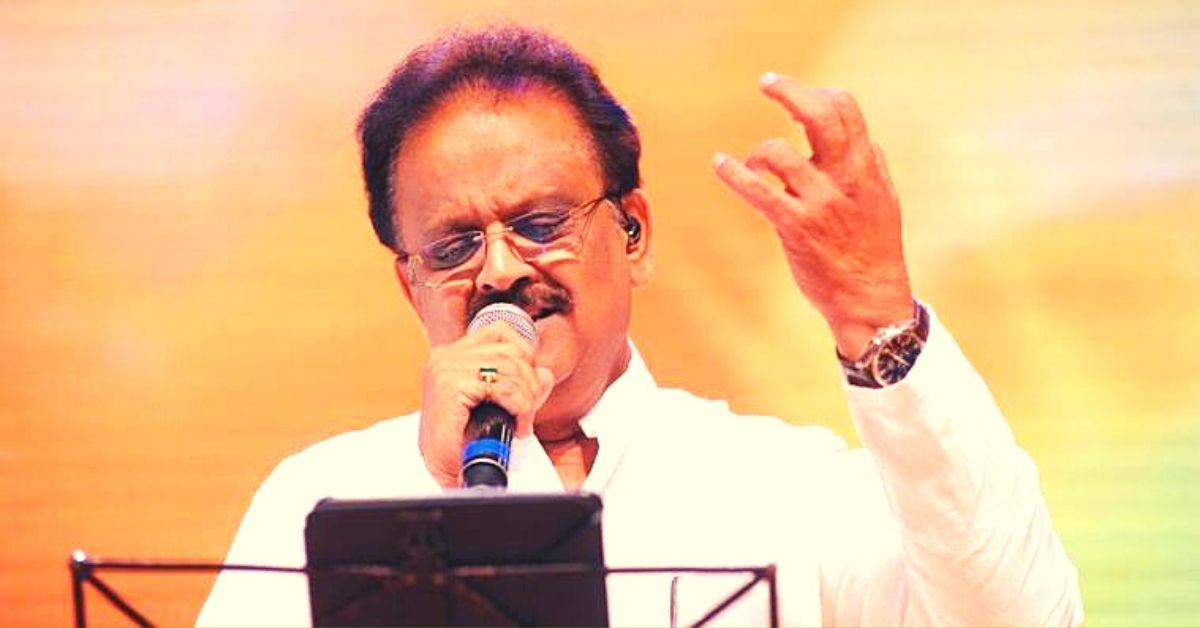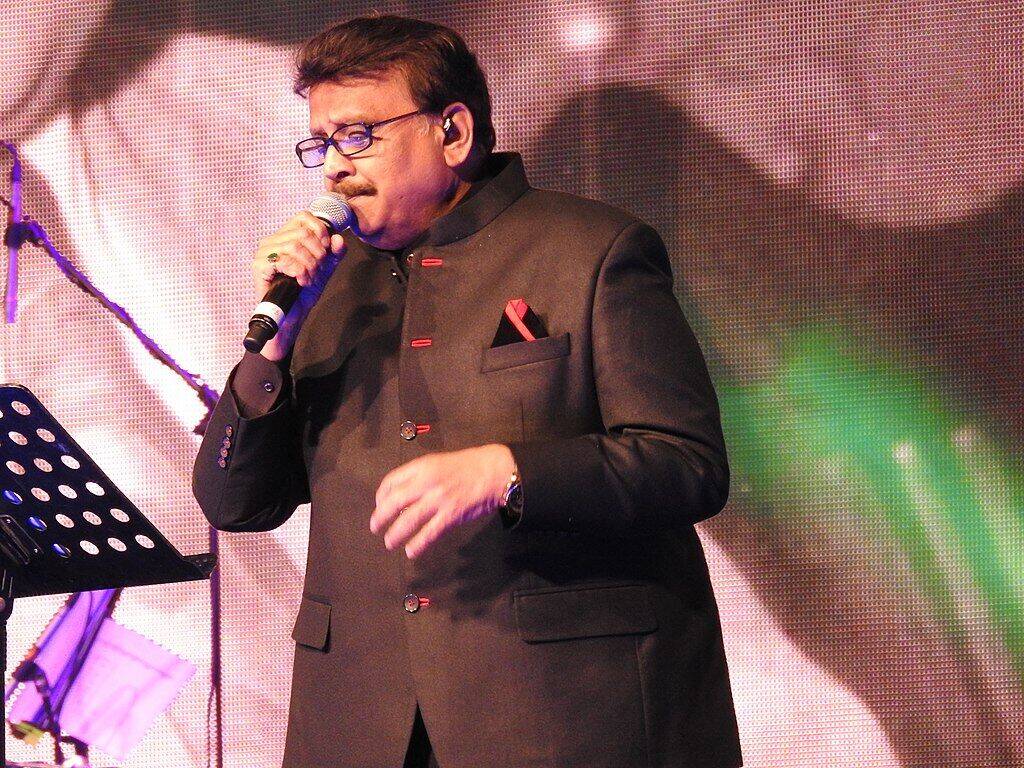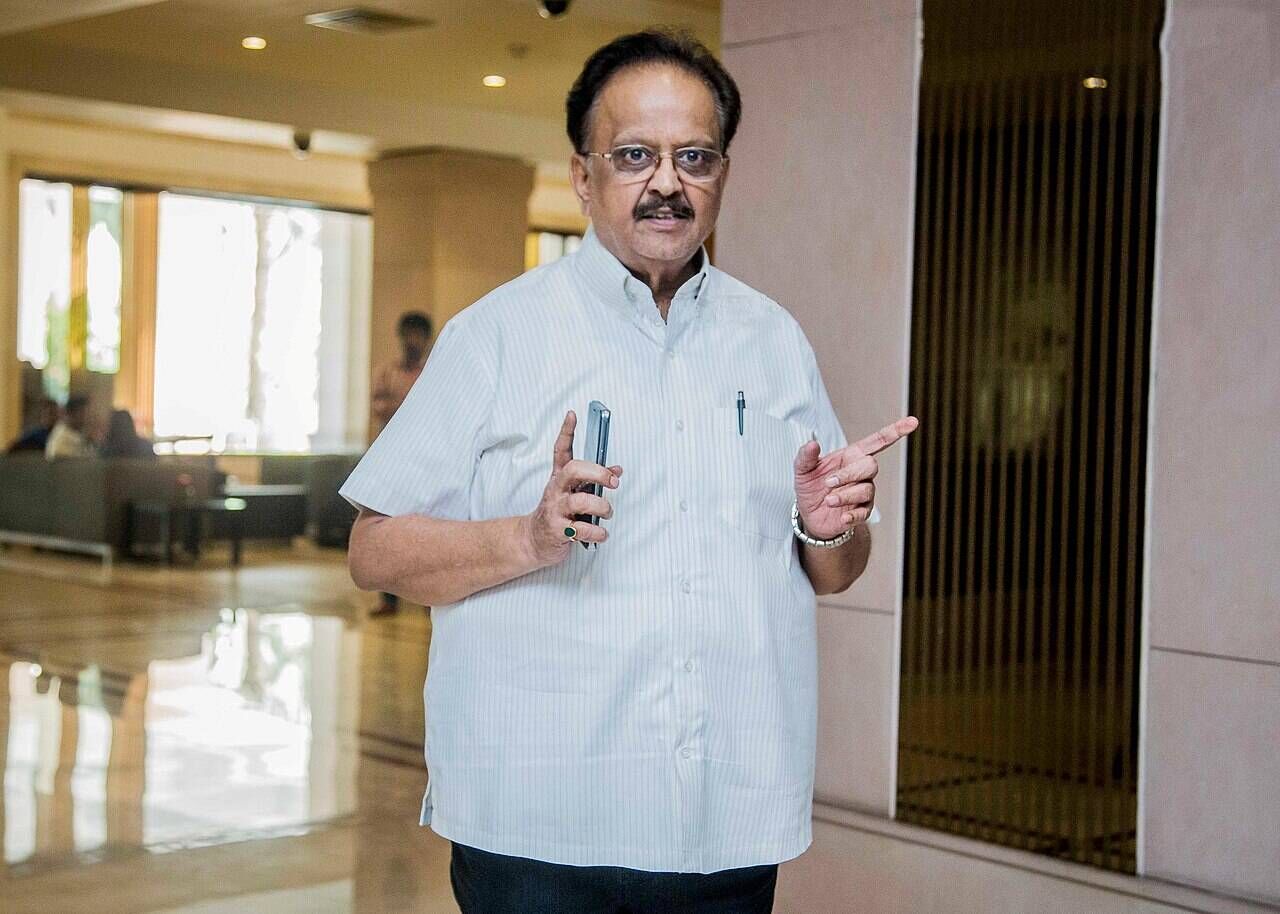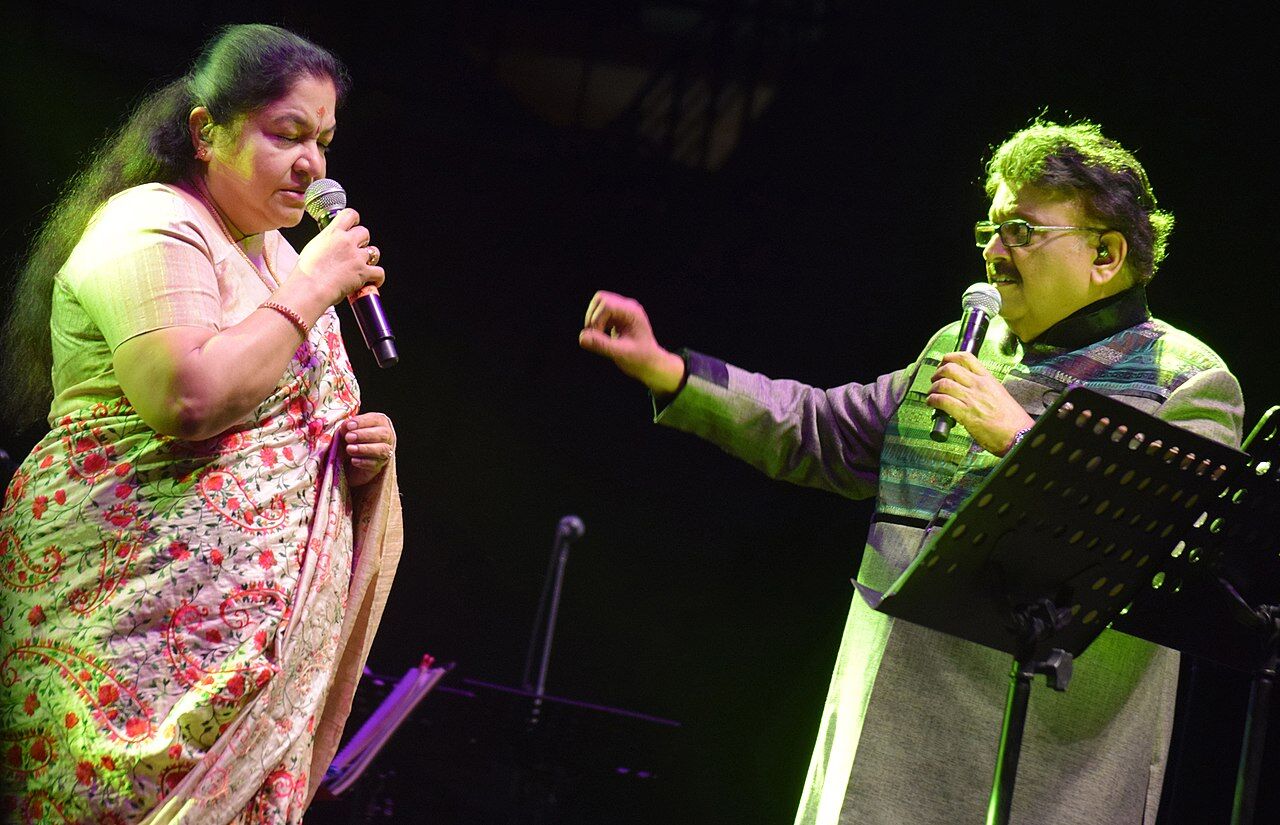40,000 Songs, 5 Decades, One Voice: The Magic of Padma Vibhushan SP Balasubrahmanyam
Singing songs in 16 languages including Telugu, Tamil, Malayalam, Kannada and Hindi, Sripathi Panditaradhyula Balasubrahmanyam, popularly known as SPB, worked alongside the greatest geniuses of Indian film music through the 1960s, '70s, '80s, '90s and in the 21st century as well.

Before I knew what music meant to me, I had heard the timeless voice of Sripathi Panditaradhyula Balasubrahmanyam, popularly known as SPB. It was on AR Rahman’s debut soundtrack album, Roja (1992), and the song was Rukkumani Rukkumani. Interestingly enough, as an impressionable four-year-old, I had first heard the song in Tamil during a winter dinner party hosted by my father’s work colleague in Ulaanbaatar, Mongolia.
(Image above courtesy Facebook/92.7 BIG FM)
Although I didn’t understand a word of the song or what it meant, I distinctly remember smiling to myself and constantly repeating SPB’s opening line “Rukkumani Rukkumani, Akkam Pakkam Enna Satham” much to the amusement of the guests there.
It’s a voice that I have since heard for more than half my life, which I spent studying in different institutions across South India. Whether it was on a school trip to the holy city of Tirupathi or a tea shop on the streets of Taramani, Chennai, at five in the morning after an all-nighter preparing for a college exam — it’s a ubiquitous voice I couldn’t escape.
However, it was only after his sad demise on 25 September 2020 due to cardio-respiratory arrest, when I bothered to deep dive into the life and career of this once in a generation talent.

‘The definitive introduction to music’
With a career spanning over 50 years and an eye-popping 40,000 recorded songs across films, TV serials and private albums and in 16 languages including Telugu, Tamil, Malayalam, Kannada and Hindi, SPB has worked alongside the greatest geniuses of Indian film music. From MS Viswanathan, KV Mahadevan, Naushad Ali, Laxmikant-Pyarelal and AR Rahman to the maestro Ilaiyaraaja with whom he shared a legendary partnership that influenced generations of music listeners in South India, he has worked with them all.
He was the voice of choice to provide ‘playback’ to some of the biggest stars of Indian cinema, including MG Ramachandran, Sivaji Ganesan, Gemini Ganesan, Rajinikanth and even Salman Khan. Such was the magnetic quality of his incredible voice that it would be very difficult to imagine anyone else filling those shoes. And, of course, there are countless highly skilled playback singers with whom he shared the booth with, including Lata Mangeshkar, Asha Bhonsle, KS Chitra, S Janaki, Kavita Krishnamurthy and so on.
What’s particularly astounding about SPB’s career is that his contributions don’t end at just being a singer of the highest quality. He also made his mark as a voice-over artist—for actors like Rajinikanth, Salman Khan, Anil Kapoor, Kamal Haasan and Girish Karnad—music director and actor. By any measure, it’s an astounding body of work, where he has probably sung more blockbuster hits in South Indian cinema than everyone else combined.
The first of his six National Awards as Best Male Playback Singer came for his work in the 1979 Telugu-language musical drama film written and directed by K. Viswanath, Sankarabharanam. Two years later, he won the National Award for his first project in the Hindi film industry through Ek Duuje Ke Liye (1981), which starred Kamal Haasan and Rati Agnihotri and was directed by the legendary K Balachander.
“To anyone growing up in the South of India in the 1970s, ’80s, ’90s and even the 2000s, the voice of SPB is the definitive introduction to music and singing. It becomes the crucible on which everyone else’s vocalisation is then placed, compared and sometimes found wanting. His voice is internal to us, and deeply customised,” wrote Anil Srinivasan, a pianist, music educator and writer, in a column for Scroll.in following SPB’s demise.

Not a Classically Trained Singer
Born into a Telugu family in Nellore, Andhra Pradesh, on 4 June 1946, SPB had developed a keen interest in music at an early age studying musical notations. After finishing school, he enrolled at the JNTU College of Engineering Anantapur and was all set on becoming an engineer. Although typhoid had brought a halt to his studies, he joined as the Associate Member of the Institution of Engineers, Chennai, and began participating in amateur singing competitions across the city winning a whole host of awards. SPB was a little over 20 years old when he made his debut as a playback singer in Sri Sri Sri Maryada Ramanna, a Telugu film scored by his mentor and music director SP Kodandapani.
“He was musically inclined as a child but did not receive extensive formal instruction. Though he often expressed regret over not being a ‘trained’ singer, it is interesting to imagine what formal training might have done to his vocal adventurism, which often flirted with the limits of a raga, and was a perfect fit for film music. Not unlike Kishore Kumar,” wrote Anand Venkateswaran, a former journalist, in a column for The Wire.
“He burst into the scene fully formed in 1966. There was no learning curve or tentative beginnings. The virtuosity was undeniable. And the emotional intelligence – the part of the voice that clicks with the words and not just the music – was precocious,” Anand further added.
Besides his undeniable skill and talent, his work ethic was off the charts. According to The Hindu, he recorded an astounding 21 songs in Kannada for composer Upendra Kumar from 9 am to 9 pm on 8 February 1981. There are other accounts of how he recorded 16 songs in Hindi in a day and 19 songs in Tamil for a similar duration.

On a more human level, however, he was also a mentor and father figure to several musicians, independent and up and coming artists as well.
As Anil Srinivasan noted, “Unerringly generous, supportive and humble to a fault – he would set the standard for collaborative ventures and the art of mentoring. He had the ability to give advice without ever enforcing his opinion and that gentlemanly composure that seems to be a relic of a bygone age. To have been able to work with him on and off the stage is perhaps a singular honor in the lives of many, including me.”
His legacy doesn’t end with music. From the award-winning Keladi Kanmani in 1990, where he played the role of a widower with an impressive voice opposite Raadhika to the heist comedy Thiruda Thiruda (1993), where he plays a CBI officer, SPB also made his mark as an actor. Of course, many also remember the 1994 film Kadhalan, where SPB plays the role of an easy-going police constable and a doting father to Prabhu Deva.
But his legacy will always be bound by his precocious singing talent, which the country recognised once again this year as the Government of India posthumously awarded him the Padma Vibhushan, the second-highest civilian honour. He already has a Padma Shri (2001), Padma Bhushan (2011) and multiple State level awards to his name.
Awards, however, don’t capture the essence of what SPB meant to generations of music listeners and aficionados from around the world. It’s about what his voice made us feel.
(Edited by Yoshita Rao)
Like this story? Or have something to share? Write to us: [email protected], or connect with us on Facebook and Twitter.
If you found our stories insightful, informative, or even just enjoyable, we invite you to consider making a voluntary payment to support the work we do at The Better India. Your contribution helps us continue producing quality content that educates, inspires, and drives positive change.
Choose one of the payment options below for your contribution-
By paying for the stories you value, you directly contribute to sustaining our efforts focused on making a difference in the world. Together, let’s ensure that impactful stories continue to be told and shared, enriching lives and communities alike.
Thank you for your support. Here are some frequently asked questions you might find helpful to know why you are contributing?


This story made me
- 97
- 121
- 89
- 167











